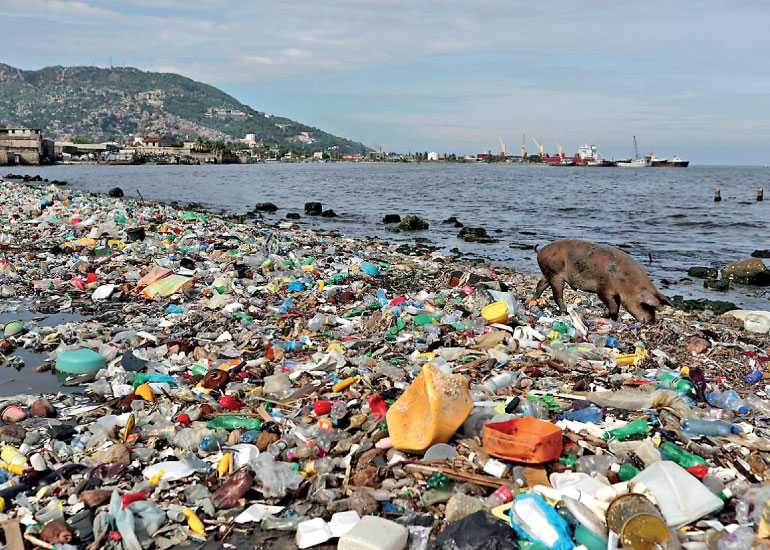A new research published on Wednesday says further actions are needed to stop plastics entering the world’s oceans from tripling by 2040 after it had surged by an “unprecedented” amount since 2005.
The peer-reviewed research led by the 5 Gyres Institute pollution says an estimated 171 trillion plastic particles were afloat in the oceans by 2019 and predicted that marine plastic pollution could rise 2.6 fold by 2040 if legally binding global policies are not introduced.
The study examined surface-level plastic pollution data obtained from 11,777 ocean stations in six major marine regions from 1979 to 2019.
“We’ve found an alarming trend of exponential growth in microplastics in the global ocean since the millennium. “We need a strong legally binding U.N. global treaty on plastic pollution that stops the problem at the source,” Marcus Eriksen, co-founder of the 5 Gyres Group said in a statement.
Read also: Climate Financing: Buhari urges least developed countries to adopt issuance of sovereign green bonds
Microplastics are particularly hazardous to the oceans as they contaminate water, and also damage the internal organs of marine animals, which mistake the plastic for food.
Meanwhile, experts have welcomed the report and said it showed that the level of marine plastic pollution in the oceans has been underestimated.
“The numbers in this new research are staggeringly phenomenal and almost beyond comprehension,” Paul Harvey, a scientist and plastics expert with Environmental Science Solutions was quoted as saying.
An agreement to tackle plastic pollution in Uruguay in November, with the aim of drawing up a legally binding treaty by the end of next year has been initiated by the United Nations while a separate international treaty was agreed on Sunday by UN countries to help protect biodiversity in the world’s high seas.
Environmental group Greenpeace said that without a strong global treaty, plastic production could double within the next 10 to 15 years, and triple by 2050.
Story was adapted from Reuters.
